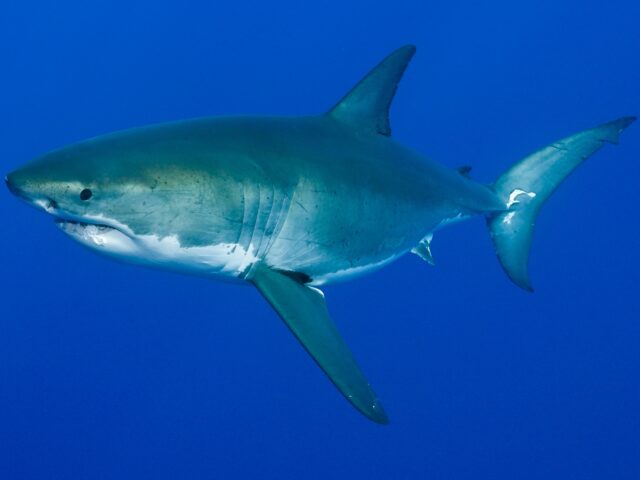Multiple great white sharks have gathered off the coast of North Carolina, an animal known as the world’s biggest predatory fish.
The specific area is the Outer Banks, and OCEARCH, a nonprofit organization dedicated to the animal, has tagged nearly 90 of them throughout the Western North Atlantic, A-Z Animals reported Wednesday:
Each tag that is affixed to a shark’s dorsal fin is equipped with a transmitter. When the shark’s fin breaks the surface of the water, the transmitter sends a ping which OCEARCH uses to geolocate the shark. Often those pings are spread out over large distances, from the Gulf of Mexico to Quebec and Newfoundland. That is certainly not the case right now.
As of Thursday morning, the OCEARCH Shark Tracker was monitoring five great whites lurking near the state’s coast.
The group is made up of juveniles and adults whose names are Miss Costa, Breton, Martha, Jekyll, and Ormond.
In a social media post on Monday, OCEARCH shared an image that appeared to be Breton, who is approximately 13 feet long and weighs 1,500 pounds.
“Mature male #WhiteShark Breton is visiting the Outer Banks! He is joined by many of our juvenile sharks who have spent the last few weeks in the same region,” the post read:
Meanwhile, Nick Van Sicklen, who studies the sharks, told NewsNation people do not need to necessarily worry about where the sharks are because “Anytime you go to the ocean, there’s always gonna be sharks around you.”
“But they do a good job identifying that you are not a food source. So it’s not necessarily that you need to know where they are so you can be in places where they aren’t. The sharks are always there, but they’re smart enough to know what is and is not prey,” he continued:
Meanwhile, one pattern shows sharks gravitate toward North Carolina in February and March, and “There seems to be mounting evidence that these waters are a great white shark nursery,” the A-Z report said.
According to the World Wildlife Fund, the great white shark is known as the biggest predatory fish in the world.
“It has 300 teeth, yet does not chew its food. Sharks rip their prey into mouth-sized pieces which are swallowed whole,” the site read.

COMMENTS
Please let us know if you're having issues with commenting.